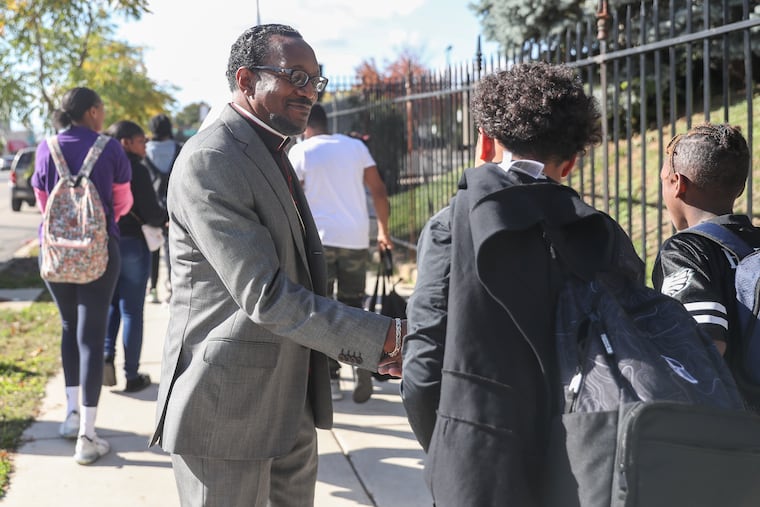As a pastor, I’m calling on Philly churches to step up to stem the gun violence in our streets
Too many of our young people feel like they have nothing to live for, so they reach for guns. I’m hosting a town hall to encourage Philly churches to address the spiritual causes of this violence.

Violent crime in the predominantly Black neighborhoods of Philadelphia has increased alarmingly. A total of 562 people were murdered last year, the highest number of gun homicides in the city in recorded history. This year doesn’t look any better.
Most disturbing, many of these murders involve kids killing kids. Three teenagers are among the suspects involved in the killing of 14-year-old Nicolas Elizalde after a football scrimmage at Roxborough High last month. Among the 400 people killed so far in 2022, 10% were younger than 18.
This level of violence in the Black community must no longer be tolerated. These horrific acts must shock us into engaging in a serious, evidence-based discussion of public safety.
The growing violence illustrates the increasing irrelevance of the political leadership of the Black community. Too many of us — politicians, clergy, and other community leaders — have lost touch with the problems of the poorest of the poor.
Over the long term, violence is an expression of nihilism. Too many young people who are living in extreme poverty believe they have no reason to hope, no prospects for their future. If they don’t believe they have anything to live for, what’s to stop them from reaching for a gun at the slightest dispute?
Violence is an expression of nihilism.
According to philosopher Cornel West, nihilism in this context is “coping with a life of horrifying meaningless, hopelessness, and (most important) lovelessness … [which] breeds a coldhearted, mean-spirited outlook that destroys both the individual and others.”
The current violence is informed by the culture of nihilism that has developed over the last several decades. As entry into labor markets has become increasingly dependent on education and high skills, we have seen a generation of economically obsolete Black Americans ill-equipped to secure gainful employment.
True, Philadelphia has made some important progress in racial equity. But the existence of a prominent Black intellectual class in Philadelphia has not necessarily benefited the poorest of the poor.
Our children need us to provide leadership, to ensure their safety in their neighborhoods, homes, schools, and on the streets.
The city is taking important steps to try to prevent violence, through its Office of Violence Prevention — these steps are necessary but insufficient to address the spiritual sources of violence. These top-down approaches ignore the key role that persistent racial and economic inequality has played in producing profound nihilism among poor young Black men.
We must reach out to our young people. We must turn them away from nihilism and violence, even as we demand justice for them and protection from police brutality. For this, we must turn to a source that has not done nearly enough to help this ongoing crisis: our churches.
Thankfully, churches have a resource to rely on: the TenPoint Plan to Mobilize Churches.
As part of the TenPoint model — already in use in Boston — local clergy partner with community organizations and others working with young people at risk of violence to try to give them hope for a better life.
It may include clergy reaching out to drug dealers, providing connections to employment as an alternative to dealing, and monitoring youth on the streets. It may involve pastors and other local leaders organizing neighborhood walks, church-sponsored cookouts, home visits, and crisis intervention services.
The advantage of these approaches is they are rooted in the community instead of being bureaucratic and top-down.
Variations of the TenPoint model have been effectively adapted in cities across the United States, the United Kingdom, and the Caribbean. The most important aspect of this plan is having responsible, caring adults play a role in prevention and intervention: diverting youth who are involved in or on the verge of being involved with gun violence to more positive life choices in education or employment.
The TenPoint Plan must be adapted to the unique needs of our city. As a step in doing this, Mount Airy Church of God in Christ is hosting a town hall meeting Oct. 27, bringing leaders from across the city together. We are urging everyone, of all backgrounds, to join us.
The city’s Black leadership, from all sectors, must confront the nihilism in the Black community and its relationship to high levels of violence. We need to unite, pray, and act.
J. Louis Felton is an auxiliary bishop in the Church of God in Christ and pastor of the Mount Airy Church of God in Christ.